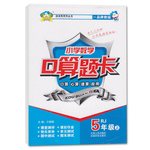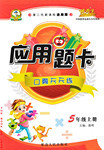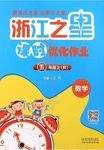题目内容
When I was in the 8th grade in Ohio, a girl named Helen in my class had a terrible accident. As she was 1 to the bus in order not to miss it, she slipped on the ice and fell under the back wheels of the bus. She 2 the accident but was paralyzed (瘫痪) from the waist down. I went to see her, in my 13-year-old 3 thinking that she wouldn’t live 4 from then on.
Over the years, I 5 and didn’t think much about Helen after that. Three years ago, in Florida, my oldest son was hit by a car while riding his bike, 6 a terrible brain injury. While I was looking after my son, a lady who said she was the hospital’s social worker called. It was a (an) 7 trying (难受的) day. I burst into tears for no reason and rang 8 .
A short time 1ater, a beautiful woman, in a wheelchair, 9 into my son’s room with a box of 10 . After 16 years, I still 11 Helen. She smiled, handed me the tissues (纸币) and hugged me. I told her who I was, and after we both went through the shock of that, she began to tell me about 12 since we last saw each other. She married, had children and got her degree so that she 13 the path for those people who were less 14 than her. She told me that if there was anything she could give me, it would be 15 .
Looking at this wonderful, giving person, I felt 16 . But I also felt the first hope I had since learning that my son was 17 . From this person that I thought would have no 18 of life, I learned that where there is life, there is hope. My son miraculously (神奇的) 19 and we moved north, but I owe Helen 20 that I can never repay.
1.A. walking B. riding C. running D. driving
2.A. lived B. survived C. existed D. escaped
3.A. mind B. brain C. head D. thought
4.A. equally B. calmly C. quietly D. normally
5.A. studied B. moved C. worked D. 1ived
6.A. suffering B. causing C. bearing D. catching
7.A. normally B. particularly C. necessarily D. eventually
8.A. up B. off C. back D. down
9.A. ran B. walked C. rolled D. moved
10.A. tissues B. presents C. pills D. candies
11.A. realized B. knew C. recognized D. reminded
12.A. her life B. her son C. her family D. her work
13.A. clear B. smooth C. clean D. open
14.A. rich B. healthy C. strong D. fortunate
15.A. money B. hope C. pity D. medicine
16.A. small B. pitiful C. weak D. shameless
17.A. admitted B. beaten C. hurt D. hospitalized
18.A. use B. value C. meaning D. quality
19.A. treated B. worsened C. relieved D. recovered
20.A. some money B. some tissues C. a debt D. a hope
1.【解析】选C。Helen是因为追赶公交车而不小心滑倒在公交车后车轮底下的,因此选running表示“追赶”。
2.【解析】选B。从后半句“(Helen)从腰部以下全部瘫痪”可知,Helen从车祸中幸存了下来。survive the
accident是常用搭配,表示“从事故中幸存下来”。
3.【解析】选A。in one’s mind意为“在某人的心目中”。
4.【解析】选D。作者认为Helen成为残疾人之后很难再过正常人的生活,因此这里用normally。
5.【解析】选B。从后一句可知,作者从Ohio搬到了Florida。因此选moved。
6.【解析】选B。儿子被汽车撞了,导致了严重的脑损伤。
7.【解析】选B。儿子出了车祸对母亲来说是一件非常难受的事情,因此选particularly“特别”;normally“正常地”,necessarily“必要地”,essentially“重要地”,均不符合语境。
8.【解析】选B。ring off挂断电话。从前句的作者的情绪可知,她应该是挂断了电话。
9.【解析】选C。坐着轮椅不可能是跑进、走进或是移进房间,而应该是滚动轮椅进入房间的。
10.【解析】选A。由后面的“She smiled, handed me the tissues and hugged me.”可知Helen来的时候带着纸巾。
11.【解析】选C。虽然16年没见,但作者还是认出了Helen,用recognized。
12.【解析】选A。“当我们从惊讶中缓过神来以后,Helen开始向我讲述我们最后一次见面之后她的生活——结婚、生子、获得学位”。B、C、D三项都不全面。
13.【解析】选B。smooth the path for sb.固定搭配,“为某人铺平道路”。
14.【解析】选D。作为残疾人,Helen能结婚、生子、获得学位,是很幸运的事,因此她这样做就为那些生活比她还要不幸的人铺平了生活道路。
15.【解析】选B。由下文中的I learned that where there is life, there is hope可以推出答案。
16.【解析】选A。在一名身残志坚的朋友面前,作者感觉到自己的渺小,因此用small,而不是weak(软弱的),pitiful(同情的),shameless(无耻的)。
17.【解析】选C。从上文提到的“my oldest son was hit by a car while riding his bike, 6 (causing) a terrible brain injury”可知这里作者指的是儿子在意外中受伤,用hurt,而其他的词性不符合语境。
18.【解析】选D。与前文提到的Helen不会过正常人的生活相对应,作者曾经以为Helen在身体残疾后,她的生活质量不会很好,而不是没有用处或没有意义。
19.【解析】选D。从前面的修饰词miraculously及后面的moved north可知,这里应指的是作者儿子康复,用recovered而不是treated治疗,worsened恶化,relieved减轻。
20.【解析】选C。此句意为“但是我欠Helen一笔永远偿还不了的债”。

 小学数学口算题卡脱口而出系列答案
小学数学口算题卡脱口而出系列答案 优秀生应用题卡口算天天练系列答案
优秀生应用题卡口算天天练系列答案 浙江之星课时优化作业系列答案
浙江之星课时优化作业系列答案完形(15%)
Albert Einstein said, “In the middle of every difficulty lies opportunity.” Once __41 __, such opportunities are like valuable diamonds hidden in the sand.
Several years ago, I spoke at a school about how we were surrounded by “___42___ ” if we could only recognize them. A man stopped by to see me, and I remembered him as somebody who had suffered through a(n) ___43___ divorce (离婚) and was examining what was most important to him. He took a small ___44___ out of his pocket. Here is what he said to me that day.
“I ___45___ on this stone when I was leaving church last Sunday. You had spoken about ___46___ opportunities—diamonds. I put the stone in my ___47___ to remind me to look for those “diamonds” that I need. I have been trying to sell my business . On Monday morning, a man w ho seemed interested in ___48___ some of my stock (股票) stopped by. I thought, ‘Here’s my diamond—don’t let it ___49___!’ I sold the entire stock to him by noon. Now my next diamond is to find a new ___50___ !”
ho seemed interested in ___48___ some of my stock (股票) stopped by. I thought, ‘Here’s my diamond—don’t let it ___49___!’ I sold the entire stock to him by noon. Now my next diamond is to find a new ___50___ !”
Not long afterward, he did find a new an d better job. From then on, he decided to keep his stone with him all the time as a ___51___ to look for “diamonds” as he dug through the ___52___ of life.
d better job. From then on, he decided to keep his stone with him all the time as a ___51___ to look for “diamonds” as he dug through the ___52___ of life.
Richard DeVos is right when he points out. “This is an exciting world. It is filled with opportunities. Great moments wait around every corner.” Those moments are diamonds that, ___53___ left unrecognized, will be forever lost.
Are you looking for “diamonds” every day? If not, you may ___54___ pass them by! Perhaps there is a diamond of opportunity hidden in the difficulty you’re ___55___ now.
| 【小题1】 |
|
| 【小题2】 |
|
| 【小题3】 |
|
| 【小题4】 |
|
| 【小题5】 |
|
| 【小题6】 |
|
| 【小题7】 |
|
| 【小题8】 |
|
| 【小题9】 |
|
| 【小题10】 |
|
| 【小题11】 |
|
| 【小题12】 |
|
| 【小题13】 |
|
| 【小题14】 |
|
| 【小题15】 |
|
完形填空 (共20小题;每小题1分,满分20分)
请认真阅读下面短文,从短文后各题所给的A、B、C、D四个选项中,选出最佳选项,并在答题卡上将该项涂黑。
We often talk about ourselves as if we have permanent genetic defects (缺陷) that can never be changed. “I’m impatient.” “I’m always behind.” “I always put things 31 !” You’ve surely heard them. Maybe you’ve used them to describe 32 .
These comments may come from stories about us that have been 33 for years—often from 34 childhood. These stories may have no 35 in fact. But they can set low expectations for us. As a child, my mother said to me, “Marshall, you have no mechanical skills, and you will never have any mechanical skills for the rest of your life.” How did these expectations 36 my development? I was never 37 to work on cars or be around 38 . When I was 18, I took the US Army’s Mechanical Aptitude Test. My scores were in the bottom for the entire nation!
Six years later, 39 , I was at California University, working on my doctor’s degree. One of my professors, Dr. Bob Tannbaum, asked me to write down things I did well and things I couldn’t do. On the positive side, I 40 down, “research, writing, analysis, and speaking.” On the 41 side, I wrote, “I have no mechanical skills.”
Bob asked me how I knew I had no mechanical skills. I explained my life 42 and told him about my 43 performance on the Army test. Bob then asked, “ 44 is it that you can solve 45 mathematical problems, but you can’t solve simple mechanical problems?”
Suddenly I realized that I didn’t 46 from some sort of genetic defect. I was just living out expectations that I had chosen to 47 . At that point, it wasn’t just my family and friends who had been 48 my belief that I was mechanically hopeless. And it wasn’t just the Army test, either. I was the one who kept telling myself, “You can’t do this!” I realized that as long as I kept saying that, it was going to remain true. 49 , if we don’t treat ourselves as if we have incurable genetic defects, we can do well in almost 50 we choose.
| 【小题1】 |
|
| 【小题2】 |
|
| 【小题3】 |
|
| 【小题4】 |
|
| 【小题5】 |
|
| 【小题6】 |
|
| 【小题7】 |
|
| 【小题8】 |
|
| 【小题9】 |
|
| 【小题10】 |
|
| 【小题11】 |
|
| 【小题12】 |
|
| 【小题13】 |
|
| 【小题14】 |
|
| 【小题15】 |
|
| 【小题16】 |
|
| 【小题17】 |
|
| 【小题18】 |
|
| 【小题19】 |
|
| 【小题20】 |
|
 reaking
reaking